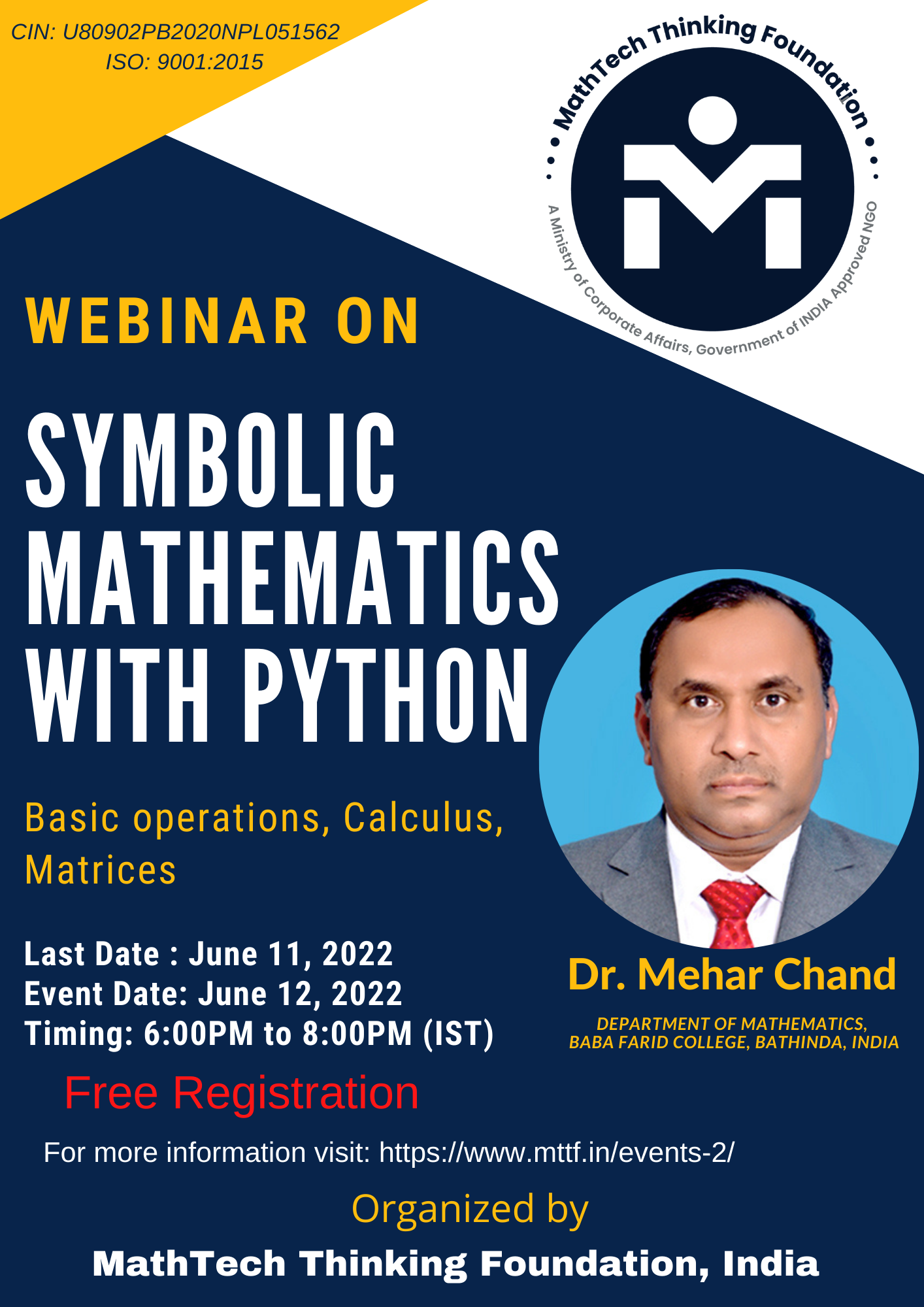Webinar on Symbolic Mathematics with Python

Event Date:
June 12, 2022
Event Time:
6:00 pm
Event Location:
Objective
The main objective of the webinar is to provide a comprehensive overview of symbolic Mathematics with Python and its applications in Engineering, Sciences and Mathematics. The workshop will provide an excellent opportunity for participants to meet and exchange ideas of common interests and to discuss new challenges faced by our academic community working in this area from different institutions and universities around the world. The training will motivate and educate the participants to develop computing skills among themselves. The procedure we intend to use in achieving this is by having resource persons who are knowledgeable in this field to deliver their talk and guide the participants with on hands examples and applications. Our desire is to leave an impact on the students and researchers to help them in the field of computing symbolic Mathematics with applications.
About the workshop
The training workshop will be held through Zoom Meeting only. The first 100 participants can join the zoom meeting others have to attend through live streaming on YouTube. There will be one session of two hours dealing with hands-on practicals for symbolic mathematics with python. All the content presented in the training workshop will be shared with all the registered participants. Only the registered participants can attend this workshop and a certificate of participation will be awarded after attending the training workshop successfully.
Why is Python?
Python is an interpreted, object-oriented, high-level programming language with dynamic semantics. Its high-level built-in data structures, combined with dynamic typing and dynamic binding, make it very attractive for Rapid Application Development, as well as for use as a scripting or glue language to connect existing components together. Python’s simple, easy-to-learn syntax emphasizes readability and therefore reduces the cost of program maintenance. Python supports modules and packages, which encourages program modularity and code reuse. The Python interpreter and the extensive standard library are available in source or binary form without charge for all major platforms, and can be freely distributed.
